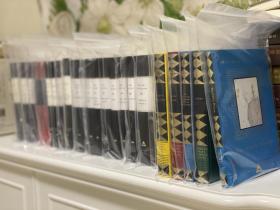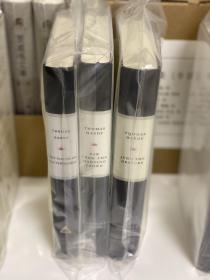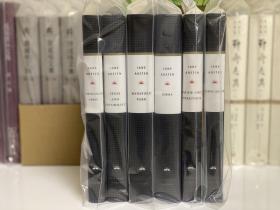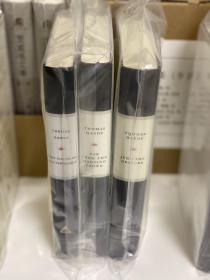
无名的裘德,卡斯特桥市长,远离尘嚣 3本合售
¥ 750 九五品
仅1件
送至北京市朝阳区
运费快递 ¥25.00
作者Thomas Hardy 著
出版社Random House US
出版时间2011-12
版次1
装帧精装
上书时间2021-02-23
- 在售商品 暂无
- 平均发货时间 暂无
- 好评率 100%
- 最新上架
商品详情
- 品相描述:九五品
图书标准信息
- 作者 Thomas Hardy 著
- 出版社 Random House US
- 出版时间 2011-12
- 版次 1
- ISBN 9780679420354
- 定价 156.00元
- 装帧 精装
- 开本 大32开
- 纸张 胶版纸
- 页数 362页
- 【内容简介】
- (Book Jacket Status: Jacketed) Thomas Hardy's almostsupernatural insight into the course of wayward lives, hisinstinctive feeling for the beauty of the rural landscape, and hispower to invest that landscape with moral significance all cametogether in an utterly fluent way in "The Mayor of Casterbridge." Aclassically shaped story about the rise and fall of the broodingand sometimes brutal Michael Henchard in the harsh world ofnineteenth-century rural England, "The Mayor of Casterbridge" is anemblematic product of Hardy's maturity-vigorous, forceful, andunclouded by illusions.
- 【作者简介】
- Thomas Hardy, whose writings immortalized the Wessex countryside and dramatized his sense of the inevitable tragedy of life,was born near Egdon Heath Dorset in 1840, the eldest child of aprosperous stonesmason. As a youth he trained as an architect in1862 obtained a post in London. During this time he began seriouslyto write poetry, which remained his first literary love and hislast. In 1867-68, his fist novel was refused publication, but Underthe Greenwood Tree (1872), his first Essex novel, did well enoughfor him to continue writing. In 1874, Far from the Madding Crowd,published serially and anonymously in the Cornhill Magazine, becamea great success. Hardy married Emma Gifford in1874, and in 1855,they settled at Max Gate in Dorchester, where he lived the rest ofhis life. There he wrote The Return of the Native (1878) The Mayorof Casterbridge (1886), Tess of the d’Urbervilles (1891), and Judethe Obscure (1895). With Tess Hardy clashed with the expectationsof his audience; a storm of abuse broke over the “infidelity” and“obscenity” of this great novel he had subtitled “A Pure WomanFaithfully Presented.” Jude the Obscure aroused even greaterindignation and was denounced as pornography. Hardy’s disgust atthe reaction to Jude led him to announce in 1896 that he wouldnever write fiction again. He published the Wessex Poems in 1898,Poems of the Past and Present in 1901, and from 1903 to 1908, TheDynasts, a huge drama in which Hardy’s conception of the ImmanentWill, implicit in the tragic novels, in most clearly stated. In1912, Hardy’s wife Emma died. The marriage was childless and hadlong been a troubled one, but in the years after her death, Hardymemorialized her in several poems. At 74, he married his longtimesecretary, Florence Dugdale, herself a writer of children’s booksand articles, with whom he lived happily until his death in 1928.His heart was buried in the Wessex countryside; his ashes wereplaced next to Charles Dickens’s in the Poets Corner of WestminsterAbbey.
为你推荐
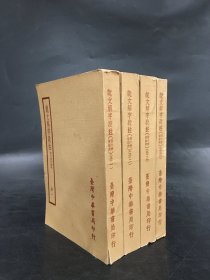
说文解字段注 附六书音韵表(全四册)
八五品无锡
¥600.00

毛泽东选集〔一卷本 32开 1966年上海1版1印〕
一品
¥50.00
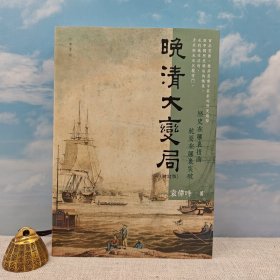
“94岁近代史名家“ 袁伟时签名+钤印(随机发) · 限量编号精装毛边本 ·香港中华书局版《晚清大变局(增订版)》(16开精装 厚册,一版一印)<因某些因素,作者内地简体版十余年未有新书出版><自1992年初版以来持续引发热议,堪称中国近代史领域最具生命力的学术畅销书,2025年全新再版>
全新北京
¥226.00

台湾三民书局版 项退结《七十浮迹:生活体验的思考-三民丛刊76》(锁线胶订)1994年版
全新北京
¥50.00

毛泽东选集一卷本,题字硬盒子
九品河池
¥35.00
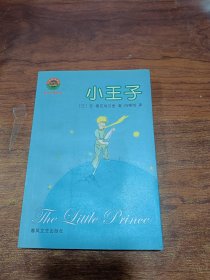
小王子
八五品宿迁
¥3.15

小王子,夜航战机飞行员
八五品衡水
¥3.20

常见病证专方论治
八五品西安
¥900.00

三体
八五品北京
¥38.00

资治通鉴
全新石家庄
¥463.80

新版李敖大全集:精装全40册合售
九品邯郸
¥4400.00

毛泽东思想胜利万岁
八五品北京
¥2850.00

当代学术棱镜译丛//景观社会
九品南京
¥8.00

小王子
全新石家庄
¥14.80

富士拍立得相机,上电池没反应,不知道什么问题
九品四平
¥300.00
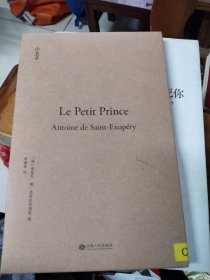
小王子(果麦经典)
八五品连云港
¥12.00

朝花夕拾
全新石家庄
¥15.80

稀见民国初版一印“精装本”《文文山全集》,文天祥 著,全二十卷,32开硬精装一册全。“世界书局”民国二十五年(1936)十二月,初版一印,繁体竖排精装刊行。此为中华传统国学经典读本,版本罕见,原书封犹存,品佳如图!
八品北京
¥368.00

陌生的阿富汗 一个女人的独行漫记
八五品保定
¥15.00

明朝那些事儿第二部
九品北京
¥7.00
— 没有更多了 —
微信扫码逛孔网
无需下载





